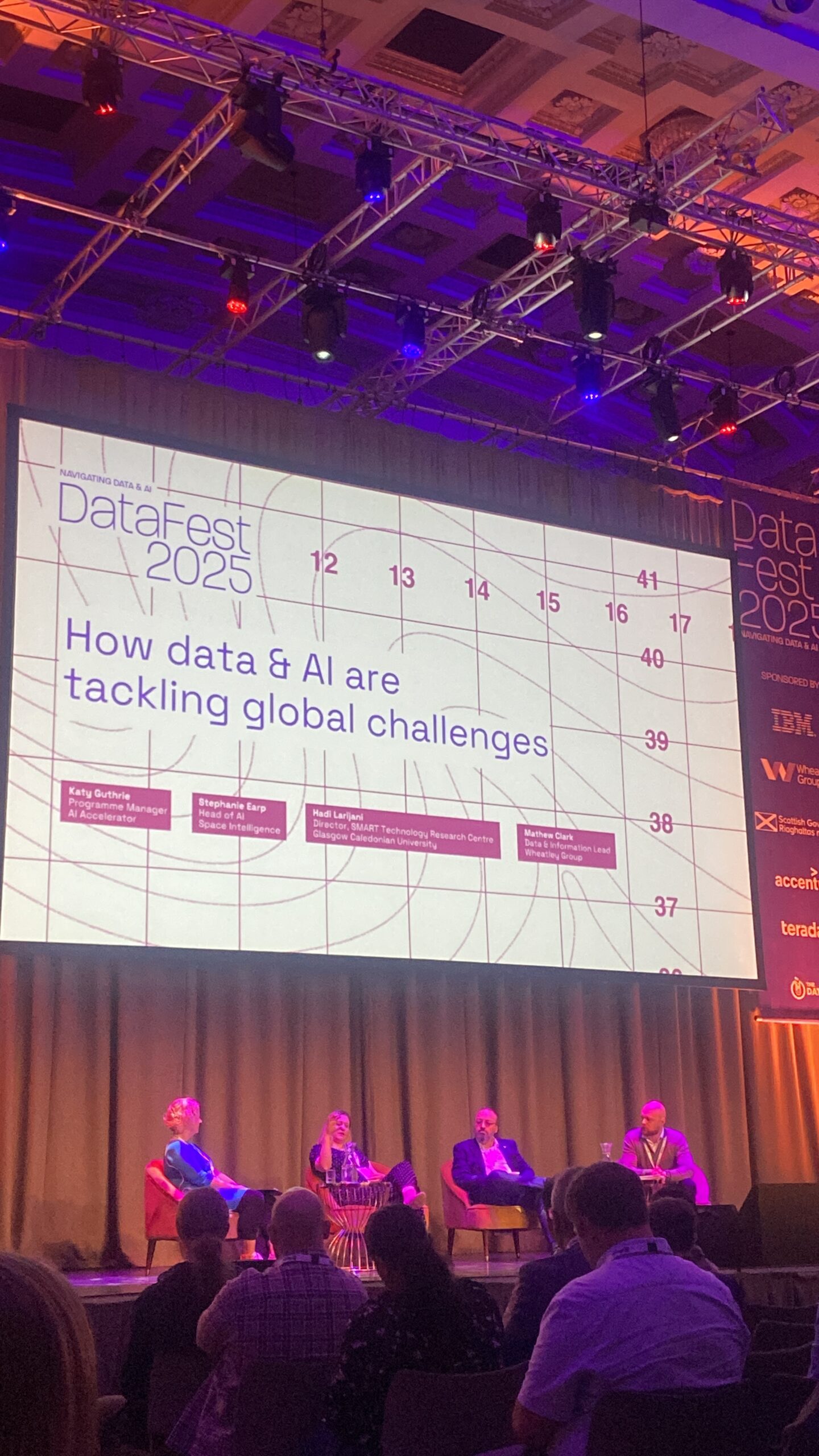
Data Fest – 2025
Joined the data community event Data-Fest in Edinburgh this week. Here is my take from the event that brought data community together in Scotland.
I attended this week’s DataFest, held in Edinburgh on Monday and Tuesday. Organized by The Data Lab since 2017, DataFest is a flagship event that brings together the data community. The event was sponsored by leading companies such as Accenture, Teradata, and Talan, and welcomed hundreds of data professionals from across the UK and beyond. It was held in Edinburgh this May.
The Data Lab, the organizer of the event, currently supports more than 150 industry-specific projects, involving over 1,000 students, and has a community of more than 6,500 members.
The fact that events like this are regularly held in Scotland, and that there is strong collaboration between universities and industry, highlights the importance placed on both community and academia in the country. This is one of the key aspects that sets Scotland apart from many other countries.


Of course, this doesn’t mean that there are no challenges in the Scottish IT landscape. Despite the strength of the community and academia, issues such as funding, access to skilled talent, and immigration barriers remain significant obstacles to further progress in the tech sector. Funding was a recurring theme throughout the event — a concern raised frequently during the discussions. But as expected, the real star of the event was, of course, AI.
The event featured several influential speakers, including Colin Jarvis, Head of Forward Deployed Engineering at OpenAI; Orlando Machado, Chief Data & AI Officer at LEGO; Duncan Clark, Head of Europe at Canva; Ross McNairn, CEO & Founder of Wordsmith AI; and Mark Byrne, Managing Director of Applied Intelligence at Accenture. In conversations with participants, both the challenges facing the industry and the opportunities to adapt to emerging technologies like AI were key topics of discussion.
If I were to highlight a few key takeaways from the speakers:
Orlando Machado, a truly impactful speaker, reflected on how much technology has evolved over time — yet emphasized that some things never change. He pointed out how certain companies continue to deliver similar products to their customers for years, regardless of how much the tech landscape shifts.
Ross McNairn, founder and former CEO of Skyscanner, offered compelling insights into the differences in how the US and Europe approach technology and innovation.
Mark Byrne argued that AI will lead to the near-future “de-humanization” of workplaces within just a few years. As someone who actively integrates AI into the data apps — and believes it’s a phenomenal technology — I personally disagree with that prediction.
One of the most inspiring and fascinating talks for me was by Duncan Clark, on data storytelling — a concept he helped pioneer.
By analyzing data and extracting narratives based on timelines and demographic context, this technology transforms raw data into compelling, human-readable stories. The data storytelling tool developed by Duncan was later acquired by Canva, where he now works, and is currently available as a feature within the platform.

The image shows an interactive visualization from the storytelling application developed by Duncan Clark, illustrating how the frontlines shifted during World War I.
Finally, AI was by far the most talked-about topic at the event. Companies — large and small — are clearly excited about this incredible technology and are actively exploring how they can harness its potential. The level of hype around AI was so strong that it dominated nearly every discussion across the event.
Personally, as I mentioned earlier, I believe AI is a phenomenal innovation. That said, it’s important to remember that data is a broader domain — and AI is just one part of it. In a data-focused event like this, I had hoped to see more attention given to data engineering, platform architecture, and other foundational areas as well. Yes, AI transformation is inevitable, and companies absolutely need to adapt — but are we now entering a space where the expectations around AI are eclipsing the importance of everything else?
I’m not entirely sure.
What do you think?

